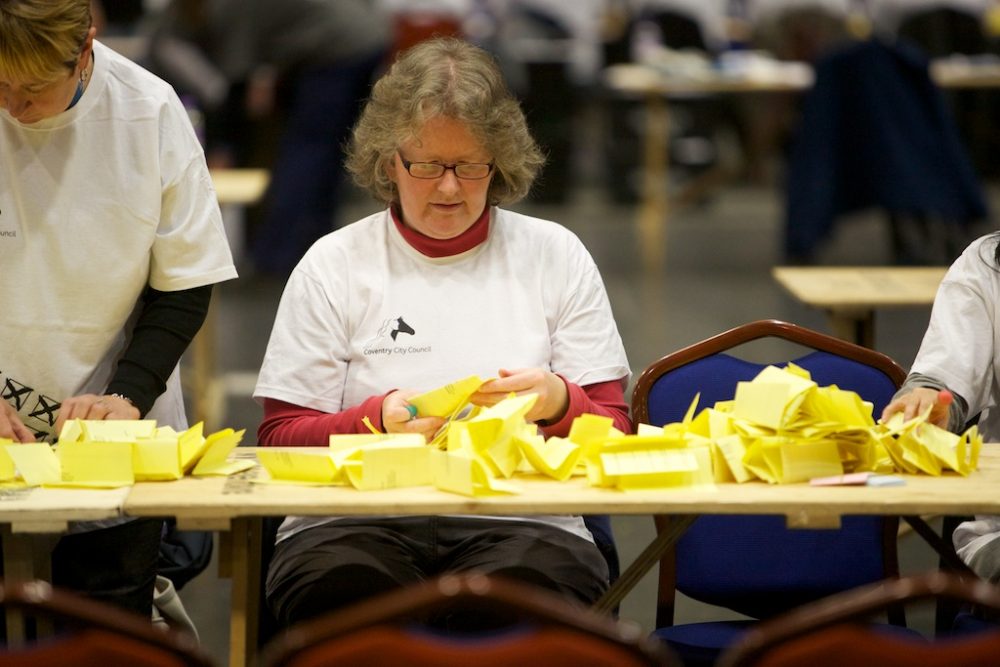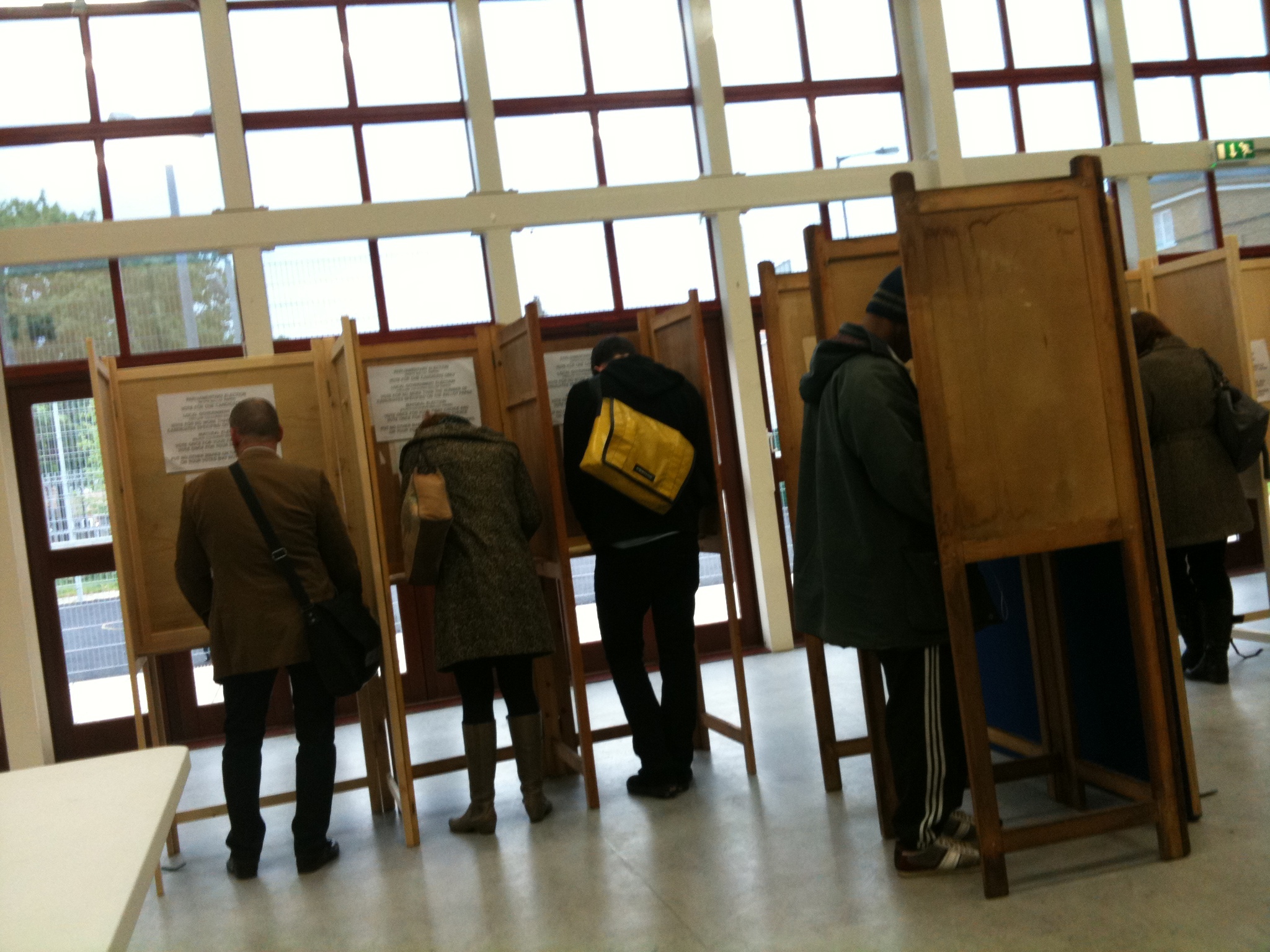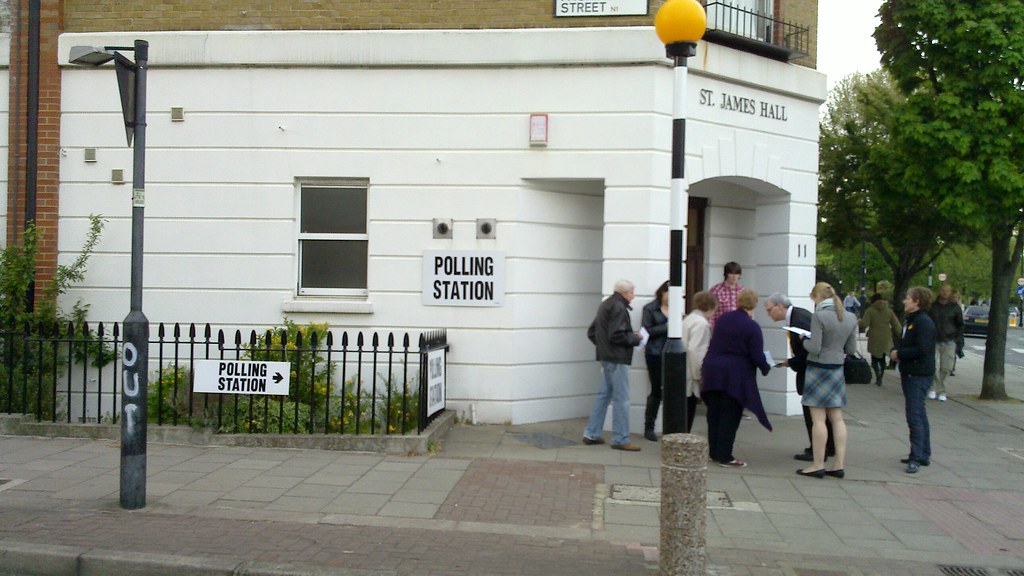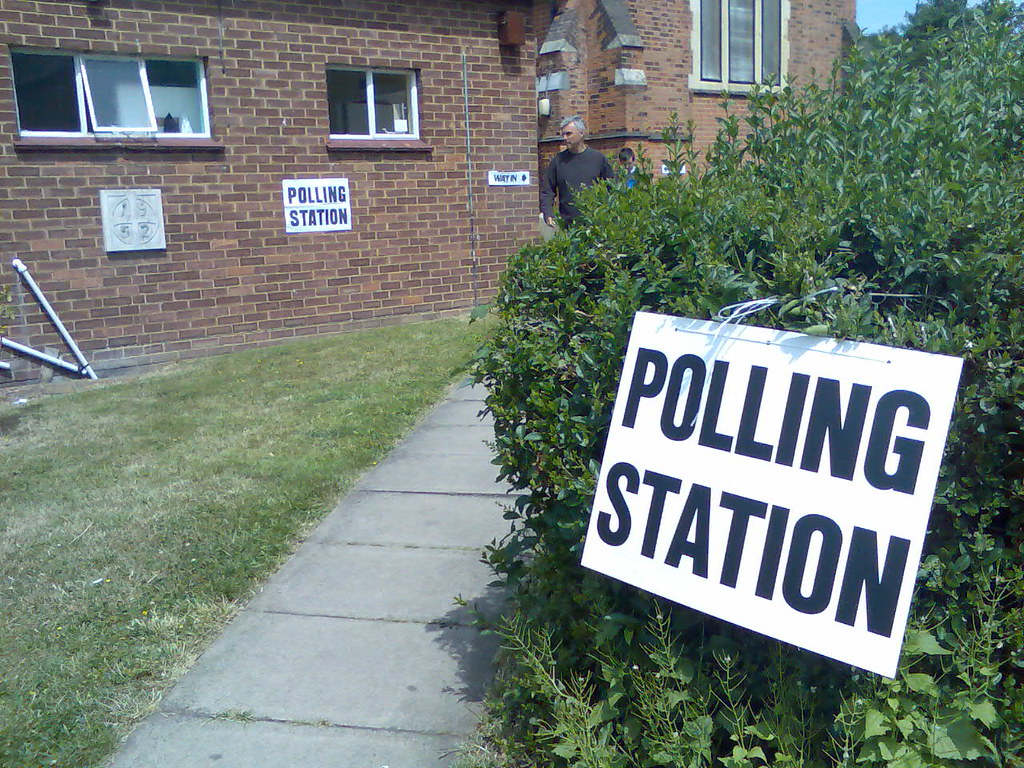As the dust settles on last week’s elections, EachOther asks: what proportion of UK electors are using their right to vote?
On 6 May, with Coronavirus restrictions beginning to lift, millions of people across the UK voted for an MP, Councillors, Members of the Scottish Parliament and the Welsh Assembly, Regional Mayors, London Assembly Members and Police and Crime Commissioners.
Despite intense national media coverage, the parliamentary by-election in Hartlepool only saw a turnout of 42.6%. In London too, 42% of those eligible to vote for the city’s Mayoralty did so – compared with 45.3% who voted there in the equivalent election in 2016, up from 38.1% in 2012.

Elections 2012 at Ricoh Arena
A similar proportion again, 41%, voted in Bristol’s council elections last week. In local elections in 2018, the average turnout in England was 35%, with only one English local authority seeing over half of its voters actually vote. Meanwhile, Charlton and Cribbs ward in South Gloucestershire saw a turnout in 2019 of just 12.1%. Turnout for council elections in Northern Ireland, Scotland and Wales all tend to be significantly higher than in England.
Protocol 1, Article 3 of the Human Rights Act of 1998 requires the government to support your right to free expression. This gives the right to individuals to vote.
General elections see the biggest turnouts. At the general election in 2019, turnout was 67.3% across the UK, the second highest level for a general election since 1997. The turnout was highest in Scotland, at 68.1%. Between 1922 and 1997, voter turnout never fell below 70% in a general election, with the highest turnout being 83.9% in the General Election of 1950. But in 2001, it dropped to just 59.4%. Turnout for UK general elections in the 21st century, so far, sits markedly below 20th century levels.

Voting in Hackney, London.
Meanwhile, in 2016’s Brexit referendum, 72.2% of those eligible to vote did so – much higher, for instance, than the 42.2% of voters who turned out for the 2011 referendum on the Alternative Vote.
Protocol 1, Article 3 of the Human Rights Act of 1998 requires the government to support your right to free expression. This gives the right to individuals to vote. This right is closely linked to the right to freedom of speech and freedom of assembly, as it guarantees respect for the pluralism of opinion in a democratic society.
If the vitality of our democracy can be gauged by levels of voter turnout, there remains work to do to inspire millions of people across the UK to cast their ballots and so to make the right to free and fair elections fully count.
The numbers cited above, however, show that last week’s elections again saw in most places less than half of eligible voters taking to the ballot box to exercise that democratic right. What’s more, as we covered earlier this week, there are concerns that the Electoral Integrity Bill announced in the Queen’s Speech now threatens to suppress turnout in some quarters further still.

A polling station (Credit: Celesteh)
In contrast, 88.4% of Belgium’s registered voters took to the polls for national elections in 2018. Similar levels of turnout can be found in recent national elections in the Netherlands (81.9%), Denmark (84.6%), Germany (76.2%) , France (74.6%) and South Korea (77.2%).
In our EachOther strategy for 2021 and beyond, we argue that ‘our rights are something we must flex and exercise: ignored and unused, they can wither’. We have used our platform to urge marginalised minorities to cast their vote to ensure their concerns are taken seriously. But if the vitality of our democracy can be gauged by levels of voter turnout, there remains work to do to inspire millions of people across the UK to cast their ballots and so to make the right to free and fair elections fully count.







